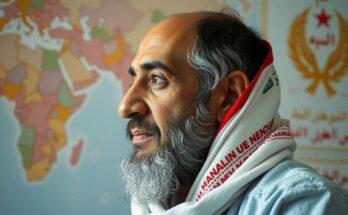A UN report reveals that rebels in eastern Congo exported over 150 metric tons of coltan to Rwanda, tainting the mineral supply chain. This occurred after the M23 group seized control of Rubaya, mixing local minerals with Rwandan production, and allegedly generated significant income through monopolized exports, complicating procurement for technology firms.
A recent United Nations report indicates that rebel groups from the eastern Democratic Republic of Congo have illicitly exported approximately 150 metric tons of coltan to Rwanda, marking the most significant contamination of the Great Lakes Region’s mineral supply chain to date. This situation arose after the M23 movement, allegedly supported by Rwanda, took control of the mineral-rich Rubaya region in April, thus disrupting the integrity of mineral exports. The report highlights that the integration of Rubaya minerals with Rwandan supplies complicates procurement processes for technology manufacturers, as they face increased scrutiny regarding the sourcing of conflict minerals.
The M23 rebels established an unofficial mining ministry, monopolizing coltan exports by imposing significant taxes, estimated at $800,000 per month, on the operations within Rubaya. By doubling diggers’ wages, they aimed to maintain the workforce while employing forced labor to improve transport infrastructure for their operations, thereby consolidating control over mineral sales to designated traders. This troubling scenario has raised alarm among stakeholders, particularly as the Democratic Republic of Congo has initiated legal action against Apple subsidiaries for allegedly utilizing conflict minerals.
Amidst these developments, Rwanda and the M23 movement have not yet issued any public responses to the charges presented in the report, leaving many questions about their role in this evolving crisis. The repercussions of these actions extend beyond regional borders, impacting international technology firms striving for ethical sourcing in their supply chains.
The DRC has long been embroiled in conflict, particularly in its eastern provinces, where valuable minerals such as coltan, utilized in electronics manufacturing, are prevalent. The M23 insurgent group has been a significant player in the region, believed to have strong ties with the Rwandan government. This illicit trade has not only environmental implications but also ethical considerations for companies that must navigate the complexities of sourcing materials from conflict zones. The United Nations has continuously monitored such activities to help ensure that corporations adhere to ethical supply chain practices.
The findings from the UN report underscore a grave situation regarding the illicit exportation of conflict minerals, particularly coltan, from the Democratic Republic of Congo to Rwanda. With rebel groups exerting substantial control over mineral resources and the involvement of international companies such as Apple under scrutiny, the report emphasizes the urgent need for transparent supply chains to prevent the perpetuation of conflict-driven economies in the Great Lakes Region. As the situation evolves, the responsibility lies with both local authorities and international stakeholders to address these pressing issues and foster ethical sourcing practices.
Original Source: www.hindustantimes.com




